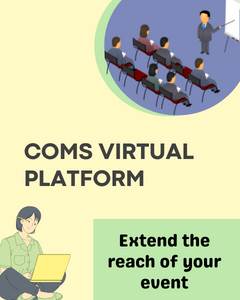Conferences > Social Sciences > Psychology > Cyprus
Select a location
Any Location (virtual event) (13) Cyprus (1) Germany (2) Netherlands (1) Singapore (2) United States (1)
1
PERSUASIVE 2025 — 20th International Conference on Persuasive Technology
05 May 2025 - 07 May 2025 • Limassol, Cyprus
Event listing ID:
1629778
Event website:
Conference-Service.com offers, as part of its business activities, a directory of upcoming scientific and technical meetings. The calendar is published for the convenience of conference participants and we strive to support conference organisers who need to publish their upcoming events. Although great care is being taken to ensure the correctness of all entries, we cannot accept any liability that may arise from the presence, absence or incorrectness of any particular information on this website. Always check with the meeting organiser before making arrangements to participate in an event!
Last updated: 19 July 2024




